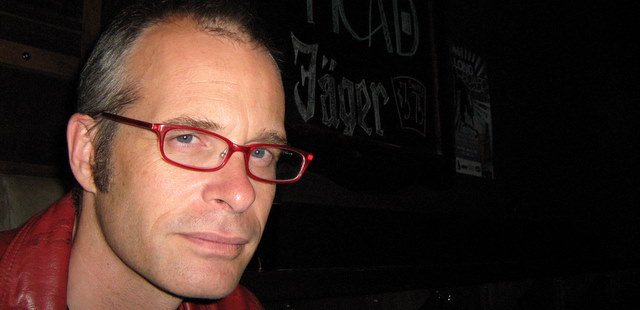Andrew Hessel: Difference between revisions
No edit summary |
No edit summary |
||
| Line 8: | Line 8: | ||
== About == | == About == | ||
I | I work to promote synthetic biology, open source biology, and iGEM. To my mind, DNA is a programming language that scientists have been working to reverse engineer with increasing success. Synthetic biology allows forward engineering, permitting scientists to write code ''de novo'' and allowing logical, ''fully understandable'' evolution of biological outputs ranging from single proteins to, eventually, synthetic cells and synthetic organisms. I advocate the use of open source for programming DNA. In software development, open source has led to robust code, highly skilled developer communities, and non-monopolistic pricing -- in other words, good things for end users. If the same results can be achieved in genome engineering, open source biology could potentially create a more diversified and sustainable biotechnology industry. These ideas are explored in ''[http://www.oreilly.com/catalog/opensources2/toc.html Open Sources 2.0]'', published by O'Reilly. | ||
== Background == | == Background == | ||
| Line 16: | Line 16: | ||
Since 2003, I have worked to raise awareness about the potential benefits of synthetic biology and open source biology. My efforts have been supported by the University of Oklahoma, the University of Toronto, MIT, and most recently, the [http://www.albertaingenuity.ca Alberta Ingenuity Fund]. | Since 2003, I have worked to raise awareness about the potential benefits of synthetic biology and open source biology. My efforts have been supported by the University of Oklahoma, the University of Toronto, MIT, and most recently, the [http://www.albertaingenuity.ca Alberta Ingenuity Fund]. | ||
In 2008, | In 2008, my goal is to found an open source biotechnology company that will focus on making individually personalized cancer therapeutics. | ||
== Contact Information == | == Contact Information == | ||
Revision as of 07:01, 5 August 2007
Andrew Hessel - Edmonton, Alberta, July 2007
About
I work to promote synthetic biology, open source biology, and iGEM. To my mind, DNA is a programming language that scientists have been working to reverse engineer with increasing success. Synthetic biology allows forward engineering, permitting scientists to write code de novo and allowing logical, fully understandable evolution of biological outputs ranging from single proteins to, eventually, synthetic cells and synthetic organisms. I advocate the use of open source for programming DNA. In software development, open source has led to robust code, highly skilled developer communities, and non-monopolistic pricing -- in other words, good things for end users. If the same results can be achieved in genome engineering, open source biology could potentially create a more diversified and sustainable biotechnology industry. These ideas are explored in Open Sources 2.0, published by O'Reilly.
Background
I received my MSc. in bacterial genomics from the University of Calgary in 1995. I joined the Amgen Institute, a 120 person research facility located in Toronto, Canada, as a bioinformaticist and manager. Working as a bridge between the Institute, Amgen Canada, and Amgen Inc. (Thousand Oaks, CA), I facilitated dozens of advanced research projects involving microarrays, genetic sequence analysis, and data mining. Today, the Institute, no longer affiliated with Amgen, is known as the Campbell Family Institute for Breast Cancer Research. In 2002, I co-founded of Miikana Therapeutics and helped create the virtual business model they successfully used. Miikana was sold to Entremed in December, 2005 for $21 million plus milestones.
Since 2003, I have worked to raise awareness about the potential benefits of synthetic biology and open source biology. My efforts have been supported by the University of Oklahoma, the University of Toronto, MIT, and most recently, the Alberta Ingenuity Fund.
In 2008, my goal is to found an open source biotechnology company that will focus on making individually personalized cancer therapeutics.
Contact Information
email: ahessel (at) gmail (dot) com phone: 780.868.3169 don't be shy. i live on email.
Skype: search for "Andrew Hessel", ahessel (at) gmail (dot) com
Letter post:
Andrew Hessel c/o Alberta Ingenuity Suite 2410, Manulife Place 10180 - 101 Street Edmonton, Alberta T5J 3S4
2007 Talks and Posters
University of Alberta Department Chairs and Divisional Directors Meeting, July 4
SB3.0 Poster -- iGEM: A case study for open source biological engineering
MIT TTT Canada overview May 26 Video
Digital Genetic Engineering, Google, May 3 Video
Alberta Ingenuity, January 17/18
